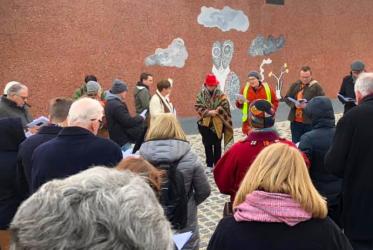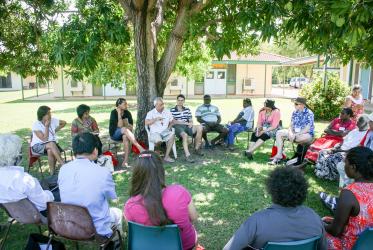Displaying 1 - 12 of 12
01 February 2021
Peace is common denominator of all major religions
05 March 2019
WCC pilgrimage turns its eyes to Asia
04 March 2019
#WCC70: A story of how we meet together
02 February 2018
A voice for peace from Down Under
10 July 2017
Indigenous spirituality: can it transform injustice into justice?
01 September 2016
Interfaith workshop calls for justice and compassion in finance
03 December 2015
“Ecumenism in the forest” draws smiles
07 July 2014








